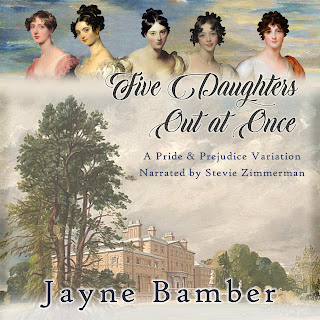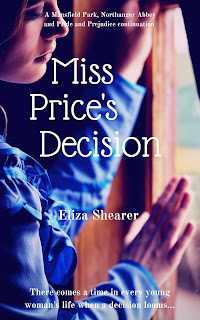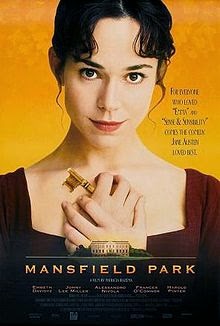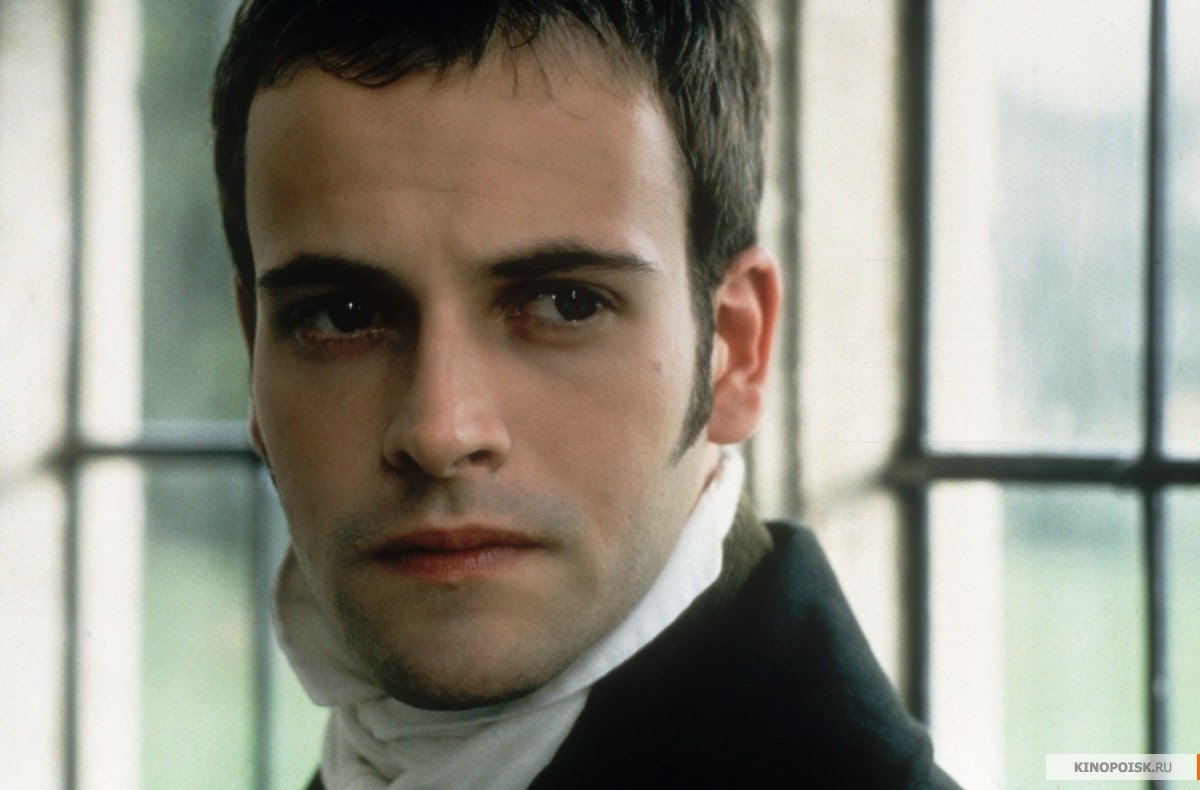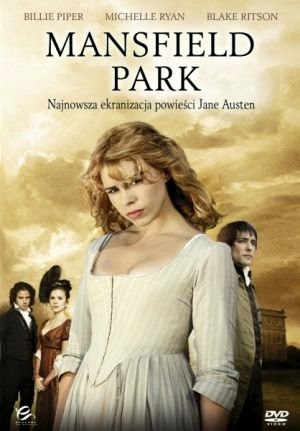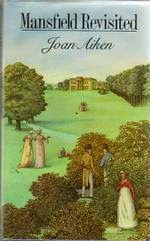A while ago I saw the film ‘Belle’ which tells the story of Dido Elizabeth Belle. The inspiration for this film was a portrait, showing Lady Elizabeth Murray and what was originally thought to be a black servant girl. However, in the 1980s it was realised that the black girl in the picture had much higher status than that. In fact, she was Lady Elizabeth’s cousin, daughter of Captain John Lindsay. Dido’s mother was a slave. Dido was brought to live with her childless uncle and aunt at the age of around five. The family she lived with were a noble family, which gave Dido a unique status in society.
While officially there wasn’t slavery in Britain, many high up families made money supported by either the slave trade itself, or the labour of slaves in far away plantations. Most black or mixed race people living in Britain in the 1700s would be ex-slaves or servants. However, Dido had a status high above that, yet not as high as her cousin, firstly due to the fact that she was illegitimate, and secondly due to her race. The uncle who took Dido in wasn’t just any gentleman – he was Lord Mansfield, the Lord Chief Justice, the highest judge in England, and one who happened to specialise in maritime insurance law and hence would deal with cases involving slaves. Lord Mansfield made decisions that paved the way for the abolition of slavery, and there were some that said this was due to the influence of one of his much-loved adoptive daughters, Dido Belle.
There is very little known about Dido, aside from the date of her christening, other church records and a number of bequests that were made to her by her family, so I knew the filmmakers took artistic licence with her story. Some of it was fascinating, the look at how she was in such a unique place in society, above the servants, yet below her class of society as a whole, and there was an exploration of how different people may have reacted to her, and how it might have made her feel that was really touching. Some of the things that are portrayed in the film went beyond the bounds of believability for me, due to the restricted place in society of women in general, and Dido in particular. It wasn't clear to me which bits were true and which weren’t, so I was pleased to see this book by Paula Byrne, which ties in with the film.
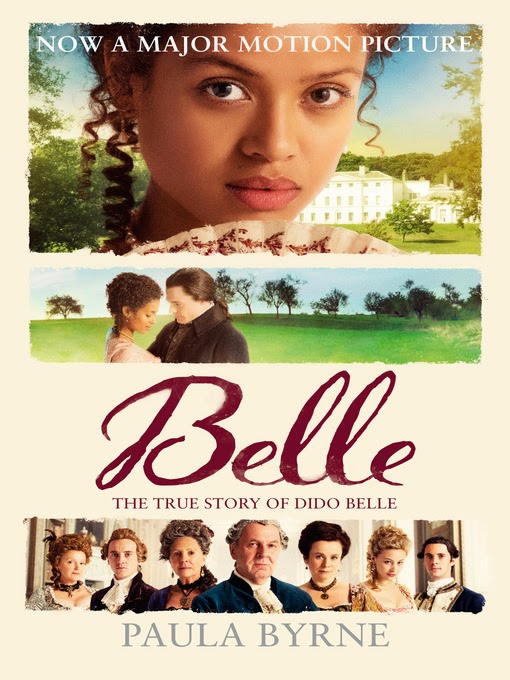
This is a factual book, and although not much is known about Dido’s life, Byrne sets what is known in context with events and societal views at the time and infers what she can from it - the result is a book that I found extremely interesting, although some parts I found hard to read, due to the subject matter. The concept of slavery is one which I find morally abhorrent. The idea that people could be owned, could be objectified, that people with feelings could be treated so disgracefully by other human beings is an extremely disturbing part of history. I found the parts that detailed slave treatment on ships, particularly the sexual treatment of women and children as young as 8 quite hard to read because I found it just so upsetting.
 |
| Granville Sharp |
One of the most dedicated fighters against slavery was a man called Granville Sharp. He worked tirelessly for the cause, taking up a number of cases and arguing that under English law there were no slaves, no property in persons and that all persons were subject to the protection of England’s laws, including the Habeas Corpus Act, relating to unlawful detention of a person, which is still in force today. A pivotal case, not shown in the film, was the Somerset case, in 1772. Here, a slave called James Somerset was brought to England by his master, Charles Stewart. Somerset escaped, but was recaptured and sold to a slave ship bound for the West Indies. The case was brought by people trying to resolve the status of slaves in England once and for all. Did slavery exist in Great Britain, or didn’t it?
The question of slavery must have been an extremely thorny issue for Mansfield. On the one hand, a large section of the country’s economy relied on the profits of slavery. There were not only slave owners, many of whom were extremely influential, but also an industry reliant on the profits of trading and shipping slaves, and people who traded in the commodities that slaves helped to produce. There were insurance policies bought and sold to insure the slaves while they were being transported. On the other hand, there was obviously a moral view too – is it right that people should be treated as less than human due to the hue of their skin? Do the ancient laws of England such as habeas corpus, not apply to black people? If a person is no longer a slave the second they set foot on British soil was there a danger that all escaped slaves would flee to Britain for sanctuary and the country be overrun with immigrants? For Mansfield there may have been the additional aspect of Dido to consider – if he ruled that black people were property and that it was lawful to recapture a slave to resell, could she have been in danger of kidnap? She had been born to a slave, and hence was technically a slave herself.
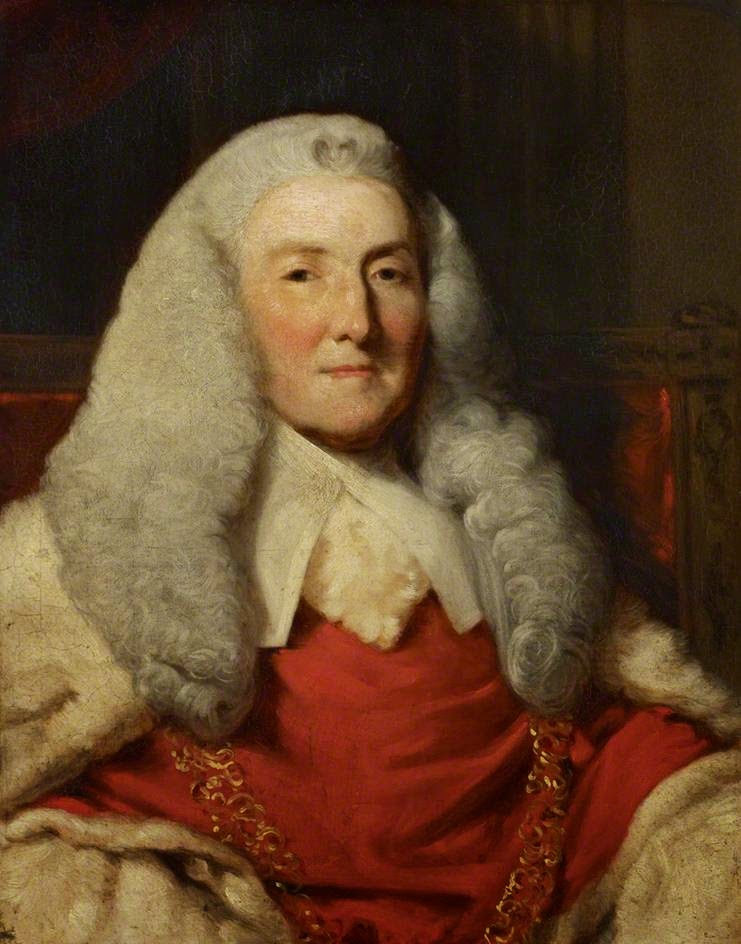 |
| William Murray, Lord Mansfield |
It is not known exactly what was said by Mansfield while he delivered the verdict, but several accounts state that he used the word ‘odious’ to describe the state of slavery, and stated that the law of England didn’t allow or approve the treatment Somerset had received, and therefore Somerset was discharged from the court. Later, Mansfield clarified that what this meant was that it was not legal to forcibly take the slave and carry him abroad in England, and that nothing had been ruled relating to the concept of slavery, however:
“The tide of public opinion had changed. A great moral question had been resolved. On English soil, no man was a slave. Mansfield, whether he liked it or not, was perceived as the man who had made slavery illegal in England.”
This case was more important than the one featured in the film, where Mansfield had to decide on an insurance case relating to the slave ship, the Zong. Here, a slave trader had claimed for the loss of some slaves in transit. The slaves had been killed by their captors. However, this horrible massacre in itself wasn’t illegal, if it was done to save the entire ship, which is what was claimed, as they had run out of drinking water. If the slaves had died of natural causes such as sickness, the insurance company wouldn’t pay out, but if the crew had been forced to kill them to save the whole craft then the insurance cover should be valid. The film doesn’t represent this case entirely accurately, the pivotal deciding legal issue wasn’t quite the same as in the film, and in fact a judgement wasn’t made as it was moved to a retrial which never took place as the plaintiff dropped his claim. I found the clarification of the true facts very interesting and helpful. I knew that the filmmakers would have taken artistic licence with Dido’s life, but I wouldn’t have expected them to have done it in relation to the court cases, so I was glad to have this clarified.
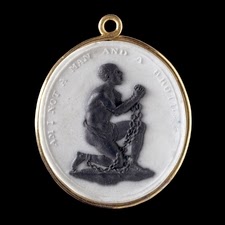 |
| Am I not a man and a brother? |
Following these sorts of cases public opinion grew and grew for the abolition of slavery. Ordinary people began to boycott sugar usage, as many slaves were working on sugar plantations, and there were high-profile supporters of the cause, such as Josiah Wedgewood, who made this anti-slavery plaque. William Cowper, the poet, wrote this in 1788:
“I pity them greatly, but I must be mum,
For how could we do without sugar and rum?
Especially sugar, so needful we see?
What? Give up our desserts, our coffee, and tea!
There are a number of examples in the book of things which created a snowball effect leading to the 1807 Act for the Abolition of the Slave trade. In the meantime, we know that both Lord and Lady Mansfield died, and Dido married, in 1793. Her husband had the same name as in the film, but was of an entirely different profession. How happy they were and whether it was a love match or an arranged marriage is entirely unknown. However, the girl who had been brought up in the absence of her parents was able to become a mother herself, to three sons, of which two survived.
There is a section at the end of the book relating just to Jane Austen’s
Mansfield Park, which I found extremely interesting. Austen was actually acquainted with Dido’s cousin, Lady Elizabeth Murray, by then Lady Finch, and it seems more than coincidental that the novel of Austen that actually references the slave trade is called
Mansfield Park. There are a number of other references that may point to a link, such as the name of one of the characters in the book. Austen would probably have been aware of a slave captain, by the name of Robert Norris, who was a supporter of the trade. This is also the surname of Fanny Price’s oppressor, a woman who holds far too much power at Mansfield Park, the horrible Mrs Norris. Some would argue that there are more references than that, such as Fanny's lifestyle, etc.
Byrne points out an idea that had never occurred to me before – on plantations where the owners were absent the treatment of slaves was generally far worse. Sir Thomas Bertram is an absentee planter, who is obliged to travel to Antigua to sort problems on that estate, but his absentee parenting style has also caused problems within his family in England, and his physical absence at this time allows the moral vacuum in his home to cause longlasting damage to his children.
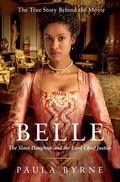
Since so little is known about Dido Elizabeth Belle this isn’t really her history, so it's a little misleading to say this is the true story of her life, but her legacy is not so much what she did as what she possibly inspired by being a much loved member of Lord Mansfield’s family. This book is more a book on the abolition of the slave trade with particular focus on Lord Mansfield and his family. It’s a book I very much enjoyed, once I’d got past the parts which I found a little upsetting. If you’ve watched the film I would definitely recommend reading this, just so you’re clear on what is fact and what is fiction, but I think it would be well worth reading even if you have no interest in the film. I read this on kindle, and just to warn you, the book finishes around 70% due to all the annotations and references.


%20S.jpg)

